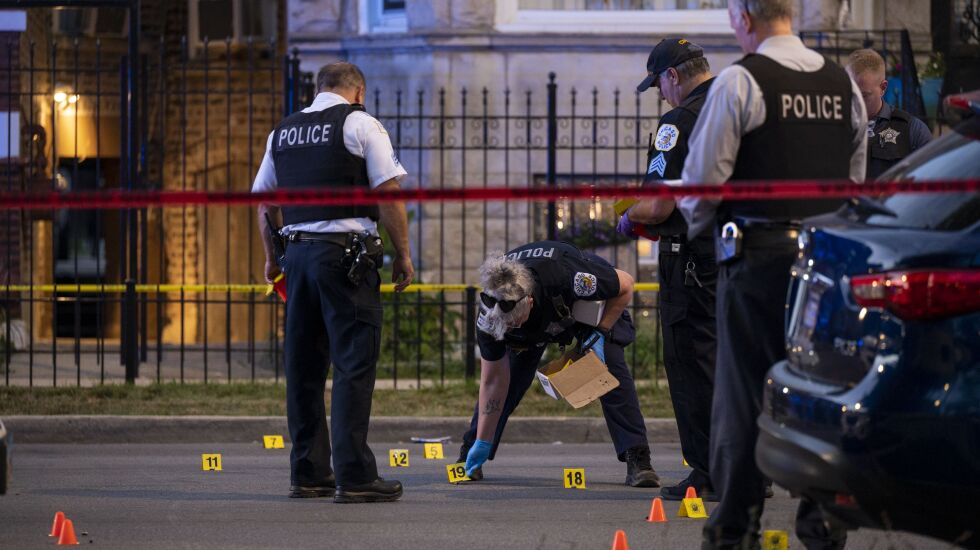
Some Chicagoans live in neighborhoods where gunfire is so rampant, they liken their surroundings to a war zone.
Residents in the West Side’s 60624 ZIP code wouldn’t be inflating the truth if they made that proclamation. It would be an understatement, particularly when it comes to the dangers young men face, a new study funded by the National Institutes of Health found.
The risk of men between the ages of 18 and 29 losing their lives in a shooting in this part of the city is higher than the death rate of U.S. soldiers who fought in Afghanistan or Iraq. Of the three other cities researched — Philadelphia, New York and Los Angeles — only Philadelphia has neighborhoods where the chance of a deadly encounter was higher than in recent military action overseas.
Yet the death rate is worse in the 60624 ZIP code, which includes Garfield Park, as the Sun-Times’ Frank Main points out in his story on the study.
Our city is about so much more than gun violence. But it’s no surprise that crime remains a top concern of Chicagoans as they prepare to vote in another mayoral election.
Their worries are motivated by the urgency to find solutions that will strengthen our overall sense of security. This latest report is another reason to keep those concerns front and center, for candidates and for the next mayor.
The city has started treating crime as a public health crisis, which the study researchers suggest. Additionally, they stress that violence reduction programs and trauma-informed care should be the focus.
Street outreach and victim support services, including trauma-informed aid for survivors of violence in the West Garfield community, are currently being funded by the Chicago Department of Public Health.
That is not the only way the city is helping, we’ve been told.
The Community Safety Coordination Center also recently launched an Emergency Supplemental Victims Fund in five communities, including the area cited in the study.
Providing financial assistance to relatives of fatal shootings and those who have been injured in them is crucial. But the end goal is to stop the shootings from taking place in the first place.
The city must keep moving forward with its initiatives in prevention as well as victim support. Those initiatives must undergo rigorous scrutiny — to find out what works, what doesn’t and why.
No Chicagoan should live in a community that’s worse than a war zone.
The Sun-Times welcomes letters to the editor and op-eds. See our guidelines.







